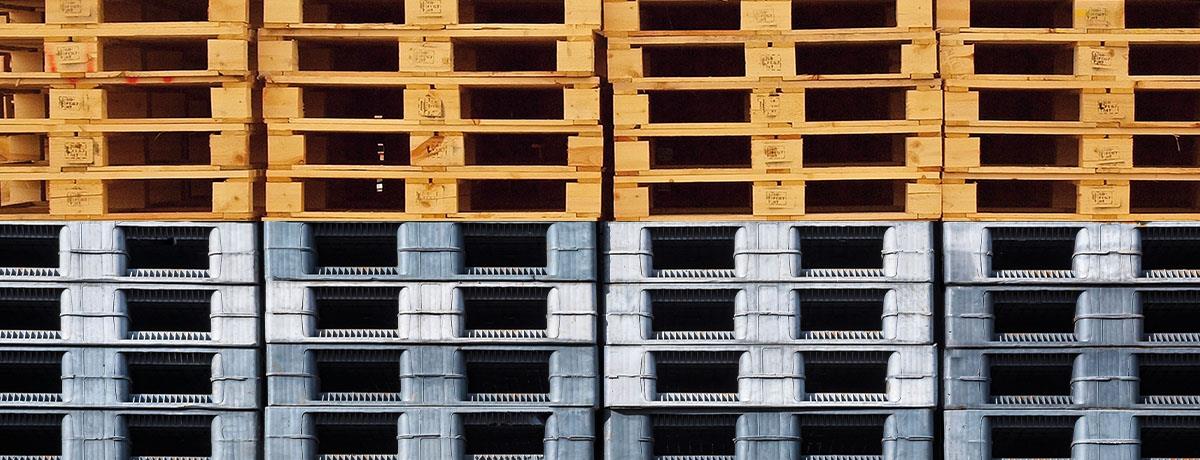
An impartial pallet buyers` guide
Pick up any materials handling or logistics magazine today and you`re likely to see articles and advertisements comparing the pros and cons of plastic and wooden pallets. For the most unbiased view possible, Eureka`s Mark Nicholson has been speaking to a company that manufactures, sells and equally promotes both kinds.
[Our profit margins on plastic and wood are fairly similar, so we have no vested interest in steering buyers one way or the Other," says Chris Shawyer, General Manager at Southampton-based Associated Pallets. [The best pallet for each of them depends on their exact application. Most people already know what type they want. If they`re not sure, our advisers will ask detailed questions about how the pallets are to be used and will then make a recommendation."
He continues: [We tend to get more requests for wooden pallets, mainly because they are much cheaper than plastic, but price shouldn`t be the only consideration. Both materials have advantages and disadvantages which have to be weighed up. In some cases, the right choice is obvious; in others, customers must decide which factors are most important to them."
With advice from Associated Pallets, we have put together the following comparison of plastic and wooden pallet properties. We then present a simple checklist aimed at matching these to the needs of common applications.
Pallet properties
Cleanliness and hygiene
For situations where pallets need to be thoroughly washed, plastic has the advantage thanks to its non-porous material – which also shrugs off spillages and odours. Wood can be cleaned, with care, but its absorbency is an issue. It can be structurally weakened by water and contaminated by absorption of spilled liquids. Nevertheless, wood is still suitable for most hygienic industries, like food, but plastic takes over where extreme cleanliness is needed. It also looks neat and clean.
Regulatory compliance
There is a long list of countries, including the EU as a block, which require all wooden pallets and wooden packaging entering them to meet `ISPM 15` regulations. This is to prevent the spread of diseases and pests. To comply, they must be heat-treated and officially stamped. Plastic pallets are exempt from these requirements, as their material cannot be infested by microbes, moulds and insects.
Durability
Under normal circumstances, plastic pallets will have a much longer lifespan than wooden. Their material is hardwearing and resistant to accidental damage. Heavy knocks may weaken and distort a wooden pallet`s structure, while plastic pallets are more likely to absorb shocks and bounce back into shape. However, when damage occurs, wooden pallets are much easier to repair, while damaged plastic pallets may have to be scrapped.
Impacts on wooden pallets may result in loose nails, splinters and sharp pieces of broken wood which can damage or contaminate goods and injure people. On a smaller scale, rubbing, scratching and banging of wooden surfaces during everyday handling can be enough to release dust and small wood fragments. These may be a problem in sensitive workspaces.







